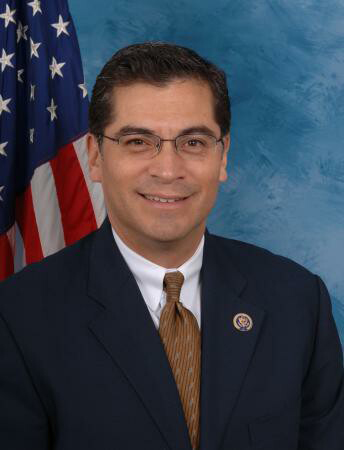January 17, 2020 - SACRAMENTO — California Attorney General Xavier Becerra filed comments on Thursday criticizing the U.S. Environmental Protection Agency (EPA) for its inadequate risk  assessment of the pesticide flonicamid despite evidence that the pesticide would cause significant harm to pollinators, such as bees. Flonicamid, manufactured by the Japanese corporation ISK Biosciences (ISK), is currently undergoing regulatory review by the EPA. In its ecological risk assessment, the EPA utilized new studies to determine that flonicamid poses a higher risk to pollinators than previously understood. However, the EPA failed to collect data from required follow-up studies, and now proposes to move to the next step of the registration process despite significant information gaps. The comment letter asserts that the EPA’s risk assessment of flonicamid must present a full picture of the pesticide’s environmental impacts so that it can impose informed restrictions on flonicamid’s use in order to mitigate its damage to pollinators.
assessment of the pesticide flonicamid despite evidence that the pesticide would cause significant harm to pollinators, such as bees. Flonicamid, manufactured by the Japanese corporation ISK Biosciences (ISK), is currently undergoing regulatory review by the EPA. In its ecological risk assessment, the EPA utilized new studies to determine that flonicamid poses a higher risk to pollinators than previously understood. However, the EPA failed to collect data from required follow-up studies, and now proposes to move to the next step of the registration process despite significant information gaps. The comment letter asserts that the EPA’s risk assessment of flonicamid must present a full picture of the pesticide’s environmental impacts so that it can impose informed restrictions on flonicamid’s use in order to mitigate its damage to pollinators.
“Agriculture not only feeds America, it drives both our state and national economies — and it wouldn’t be possible without pollination from bees,” said Attorney General Becerra. “We need to understand the harmful impact of flonicamid on these crucial pollinators — and we need restrictions that mitigate its effects. We demand the EPA seek additional data before moving forward with the registration of flonicamid for an additional 15 years. We cannot ignore the environmental and economic costs of this decision.”
Under the Federal Insecticide, Fungicide, and Rodenticide Act, all pesticides must receive regulatory approval from the EPA before they are put into use. The EPA reviews pesticide registration every 15 years to ensure registration is based on current information regarding the health and environmental impacts of a pesticide’s use. Many pesticides, including flonicamid, have come under increasing scrutiny in recent years for their adverse health and environmental effects. Flonicamid is a pesticide that manages crop pests by provoking irreversible feeding cessation, causing insects to die of starvation or dehydration. New studies submitted by ISK show flonicamid exposes bees to up to 51 times the amount that would cause them substantial harm, posing significant risks to these pollinators.
The EPA requested that ISK submit a number of additional studies required under the EPA’s Pollinator Risk Assessment Framework, including studies on flonicamid’s effect on bee colonies. ISK failed to submit most of these required studies. Yet despite new evidence of its harmful impacts on pollinators and significant gaps in the data, the EPA proposes to continue moving towards registration of the pesticide.
Pollinators are critical to California and the nation’s economy. Pollination by native bees increases the United States’ agricultural output by more than $3 billion each year, and over a third of the country's vegetables and two-thirds of the country's fruits and nuts are grown in California. Studies show that crop yields increase substantially in areas with denser native bee populations. Yet studies also show that California’s major agricultural regions, such as the Central Valley, have experienced some of the steepest declines in native bee populations of anywhere in the country.
In the comment letter, Attorney General Becerra urges the EPA to engage in more extensive study of flonicamid’s impacts and demand that ISK submit the required pollinator studies so that EPA can adopt informed restrictions that mitigate flonicamid’s harms to bees.
A copy of the comment letter can be found here.
Source: CA. DOJ








